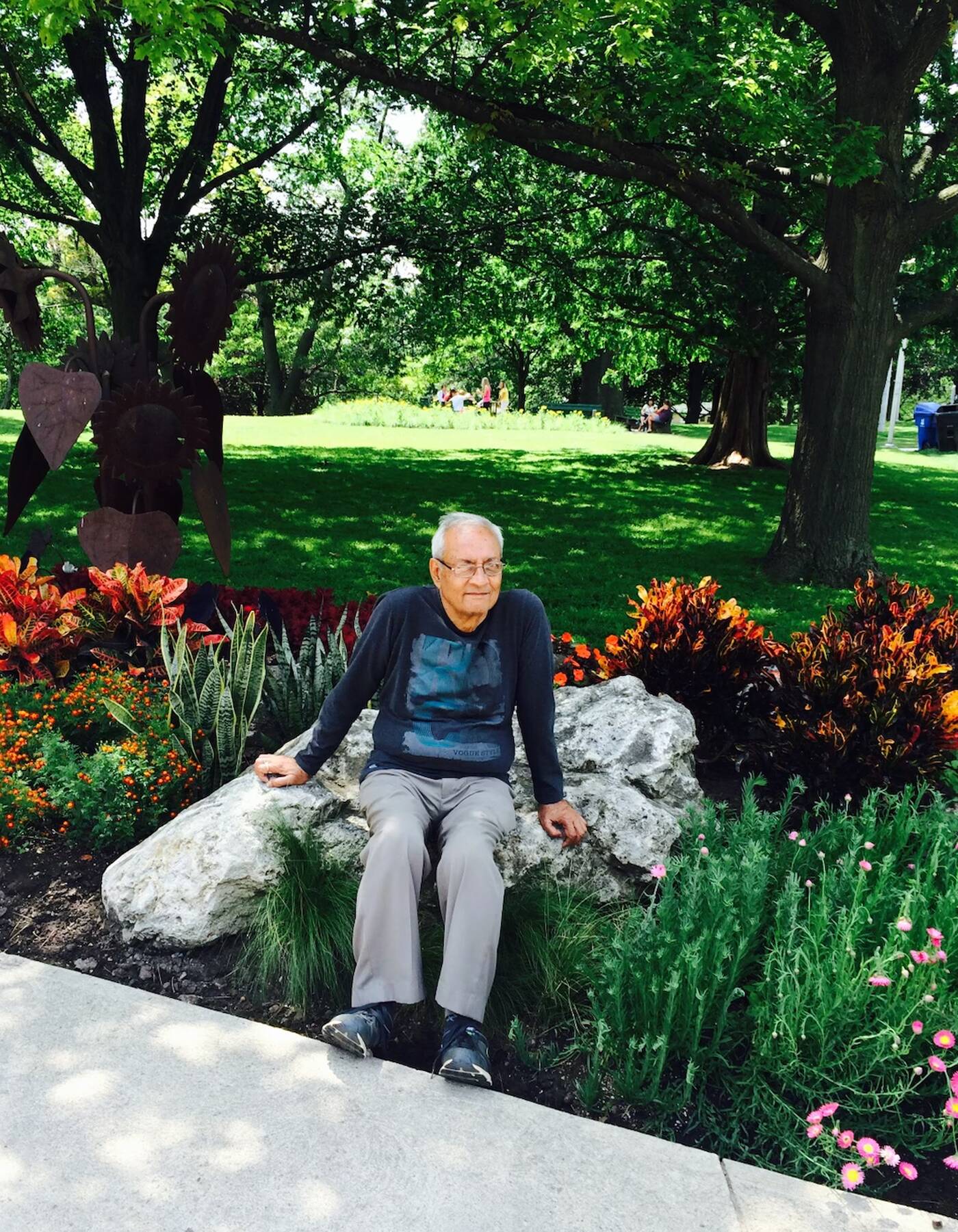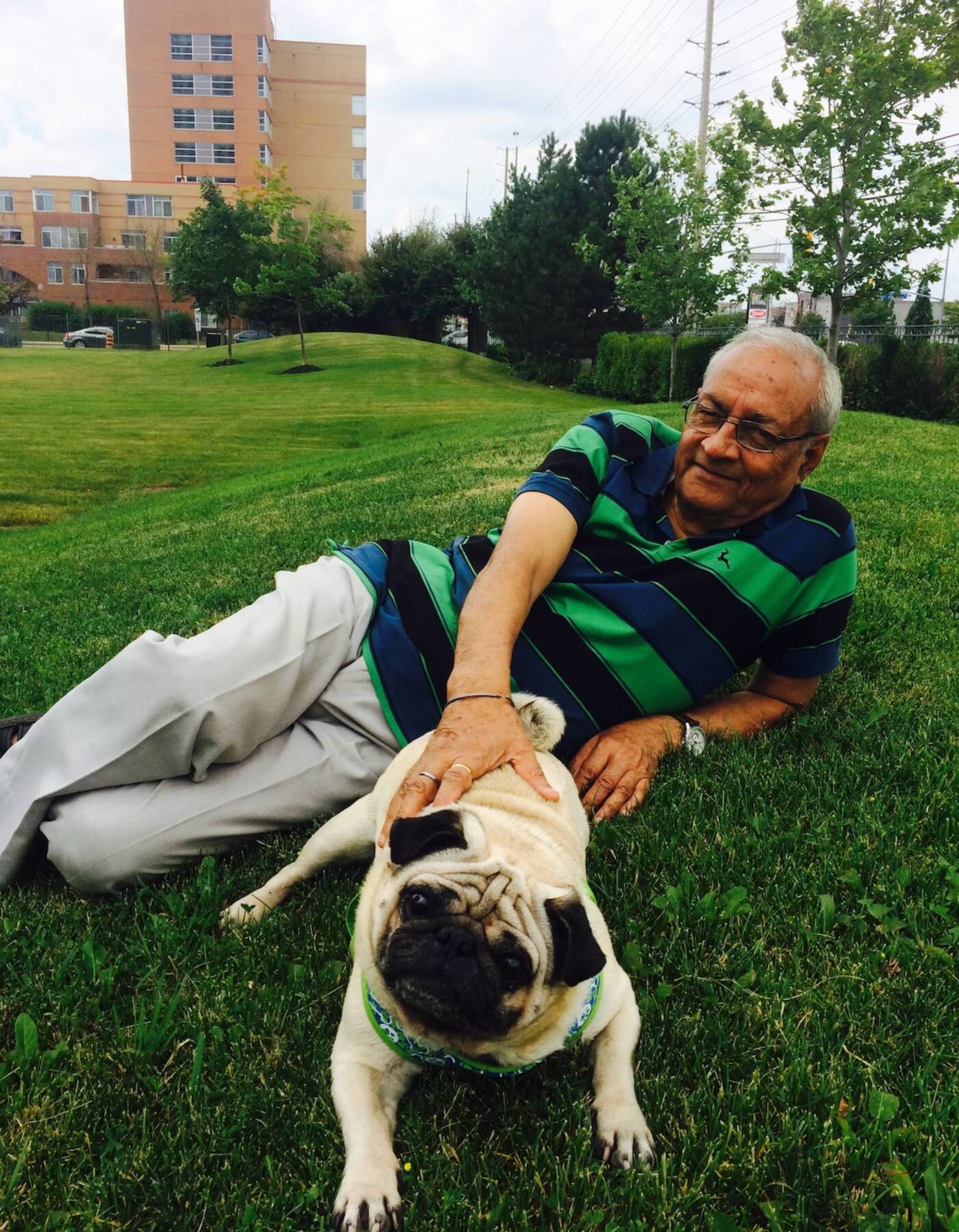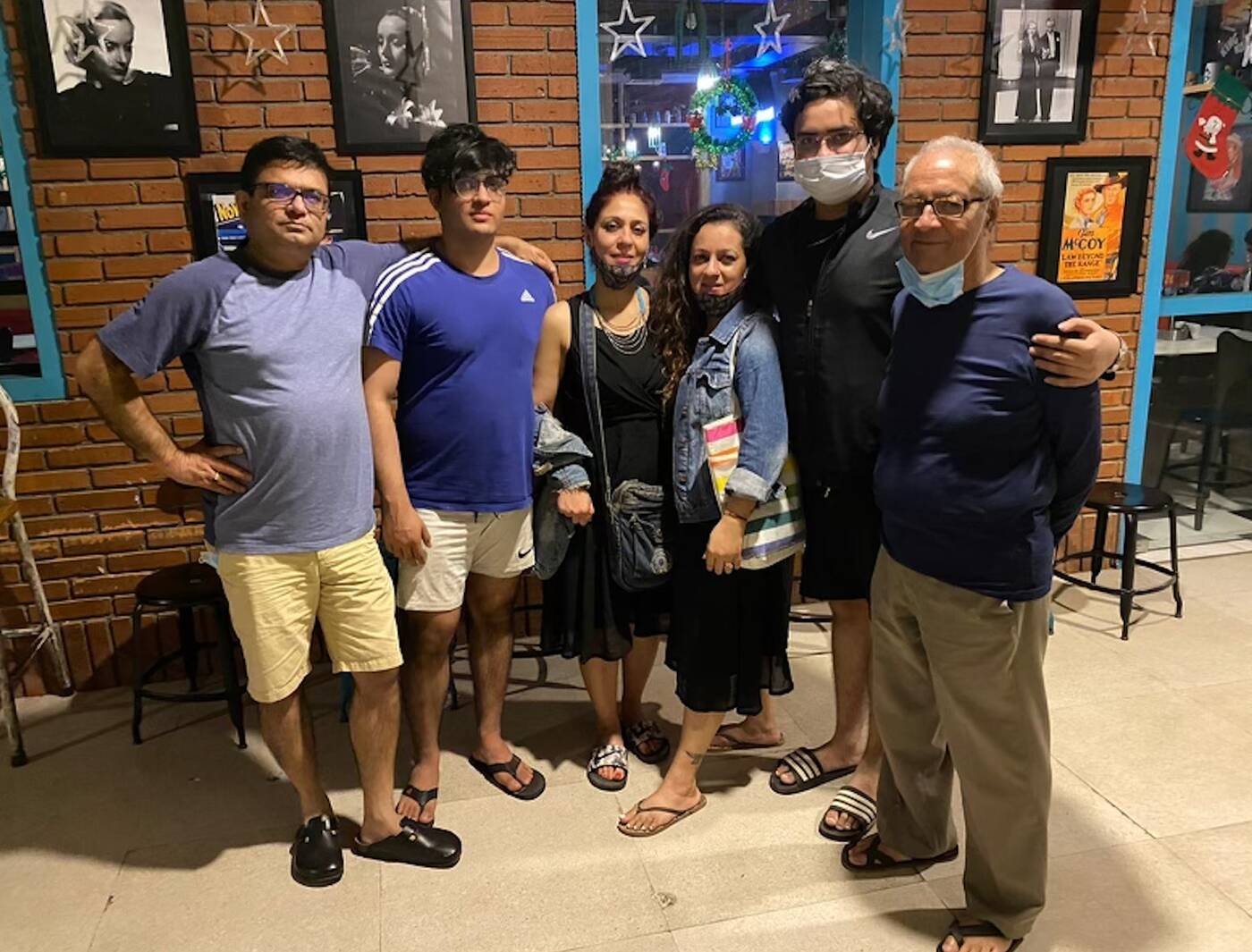
Woman says Toronto-bound father would still be alive if Air Canada diverted flight
Shanu Pande is grieving the loss of her father and believes he would still be alive had Air Canada diverted their flight so he could have received emergency medical attention.
In September, Pande, her 83-year-old father, Harish Pant, and her mother-in-law were travelling from New Delhi back home to Toronto via Montreal.
Her father had recently obtained his Canadian permanent residency and was looking forward to visiting his daughter's home in Milton, Ontario, for a few months.
Before boarding the long-haul flight, Pande said her father was in good health. Prior to obtaining his permanent residency, she said he had received a good bill of health from a Canadian-approved medical centre in Mumbai.

But around six hours into the long-haul flight to Canada, Pande noticed her dad was not okay.
"He was sitting on the center seat, I [was] on the aisle. And suddenly…his head fell [to] one side [and said], 'I'm having chest pain,'" explained Pande.
"At that point, he'd even peed in his pants. I was shocked."
"Why is this happening to my dad?"
Pande recalls that her father's condition continued to deteriorate. He was limp, mumbling, and weak in the limbs.
She said that her mother-in-law, who is a heart disease patient herself, recognized her father's symptoms as some type of heart emergency and told her she needed to call for help.
Pande said she rushed to the back of the plane to call a flight attendant, and she told them the flight needed to be diverted because her dad was suffering a medical emergency.
Her request was denied.
At that point, Pande's father said he needed to use the washroom. Flight attendants provided him with a wheelchair to get to the restroom because he was too weak to walk.
Due to his condition, he lost control of his bowels and soiled himself. He was also vomiting.
Pande was struggling to help her father in the restroom, and after about 40 minutes of cleaning him up, she returned to the flight staff and asked if there was a doctor on board. Staff told her there was not, but the crew did have members who were trained in first aid.
Pande repeated her request once again for the flight to be diverted. Staff told her that the flight was continuing to Montreal and that diverting was the pilot's call.
"I was at a loss for words," she said. "I was shocked. I was unable to comprehend why this was happening to my dad."
Air Canada's response
In a statement, Air Canada said it has a "robust safety culture."
When it comes to onboard emergencies, Air Canada boasts of being supported by a "specialized ground-to-air, third-party medical provider used by dozens of other airlines around the world," known as MedAire.
The service allows crews to liaise in real-time with doctors who specialize in aviation medicine to evaluate the passenger's condition and come up with a "care plan."
"Based on the advice of medical experts, we will divert an aircraft to a nearby airport with appropriate medical facilities to obtain care without hesitation if needed — something we do 40 times a year on average."
In this case, Air Canada said that after "careful consultation" with MedAire, "diversion was not recommended."
We reached out to MedAire for further comment and is awaiting a response.
"I was trembling"
After Pande cleaned up her father, airline staff moved the two to first class so he could lie down for the remainder of the flight. His condition did not improve. He complained of an intense backache, said Pande.
She tried to keep pushing the flight attendants for help or to talk personally to the pilot. She said the attendants warned her that if she tried to go to the cockpit, she and her father would be sent back to their original seats.
"I had to make a decision. I decided that if I argue with [the flight staff], they're going to send me to the back of the aircraft. Plus my dad is listening to this conversation. He will be in more distress," she said.
Flight staff offered Pant some aspirin, but he could not take it due to an allergy. Pande gave her father some of her mother-in-law's Sorbitrate – a drug used for chest pain – instead.

Around this time, Pande believes the plane was flying somewhere over Ireland. She could not make sense of why the flight could not be diverted.
"Diverting the flight must have cost them a lot of dollars… saving dollars versus saving life."
As time passed, flight staff offered Pant three Tylenol tablets. After taking them, he was able to sleep for a short period of time, but when he woke up, he started to grow extremely cold, Pande recalled.
She talked to doctors later, who told her that if a person suffering a heart attack is not treated in time, they start going into shock.
She again expressed her concerns to a flight attendant, saying that she needed to get in touch with her husband in Toronto and sister in Bangalore to inform them of her father's condition.
The flight attendant inserted a SIM card into her phone, which allowed her to start texting her family members.
When Pande got in touch with her family, they immediately texted other relatives who were doctors about the symptoms Pant was showing. The doctors told Pande that it was "an emergency."
Pande asked the flight staff for a blood pressure monitor. They brought her a SpO2 monitor, which attaches to a person's finger in order to measure how much oxygen blood carries in comparison to its full capacity.
She sent the reading back to her husband and sister so they could consult with doctors. They texted back, saying that Pant needed a blood pressure reading.
Pande asked again for a blood pressure monitor, and staff told her they had a mercury blood pressure monitor, which they did not know how to operate.
She then remembered that her mother-in-law had a travelling blood pressure monitor in her carry-on baggage. She used that to take her father's blood pressure. The reading came out to 68/40.
"It was that low. I was really panicky. I was trembling myself," said Pande.
For the remainder of the flight, Pande tried to do whatever she could to help her father. Her family's doctor connections told her to give her father electrolytes or fluids.
She said she received no assistance from flight staff.
A tragic ending
Upon landing in Montreal, Pande was told that paramedics would be attending to the flight as soon as the plane touched the ground. But by the time paramedics arrived, it was too late to save Pant.
"At that time he suffered another heart attack right in front of me and he was gone," Pande said. "I was very hysterical."
According to Pant's official death certificate issued by doctors in Montreal, he suffered from a presumed myocardial infarction, more commonly known as a heart attack, said Pande.

Air Canada said in a statement that it understands "how upsetting this situation is for this customer and her family."
The airline added that it extends its "deepest sympathies" to Pande and her family.
However, it added that Air Canada "categorically rejects any assertions that it was responsible for the customer's death."
The airline said it "properly followed the procedures for dealing on board with medical events and provided continuous care for the passenger, including relocating him to the business class cabin so he could fully recline."
"The individual was conscious upon arrival, where we had arranged for paramedics to meet the aircraft," said Air Canada. "Unfortunately, shortly after arrival, the passenger passed away while being attended to by the paramedics."
Air Canada's conduct "inexcusable"
Gábor Lukács, president of Canada's Air Passenger Rights, offerd his perspective on the incident.
Lukács noted that his opinion is not that of a professional doctor, but based on the information and reports he has read about the situation, he finds Air Canada's conduct "inexcusable."
"…It is my opinion that Air Canada acted with flagrant disregard of the passenger's wellbeing."
Lukács also said that he is not satisfied that MedAire's response excuses "Air Canada's conduct."
"It is difficult to believe that a recommendation other than diverting the flight would have been issued if the complete and correct information was relayed to MedAire," he said.
"I consider Air Canada's conduct not simply negligent, but also reckless, showing flagrant disregard of the passenger's wellbeing."
The Canadian Transport Agency (CTA) said in a statement that this matter falls outside its mandate because it is a safety and security issue.
The CTA sent a statement from Minister of Transport Pablo Rodriguez, which he also provided to CBC News.
"I offered my condolences to … the family. They're grieving. It's a difficult moment. Now, I know Air Canada has to follow different steps and procedures, and that's … up to them to answer to that," Rodriguez stated.
The Transport Ministry has commented, saying it's still verifying and finding the facts.
Meanwhile, Pande and her family are left with many unanswered questions as they try to deal with their grief. She is seeking legal action against the airline.
"My dad … he was my best friend," said Pande. "I mean, every time I see an airplane, the whole incident plays in front of my eyes. Nothing…can bring my dad back. Only thing now … is Air Canada should be guilty and should be held accountable."
The Bold Bureau/Shutterstock
Latest Videos
Latest Videos
Join the conversation Load comments







